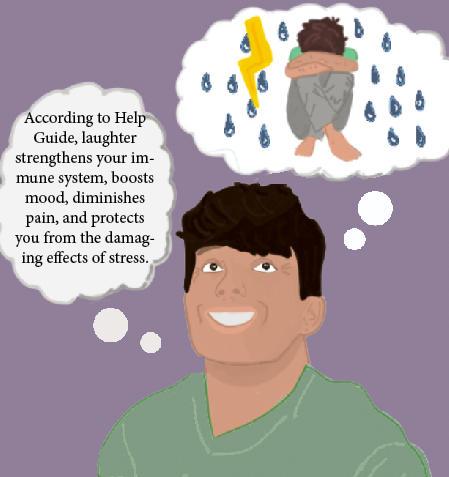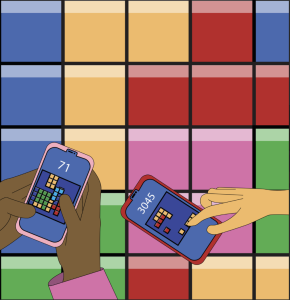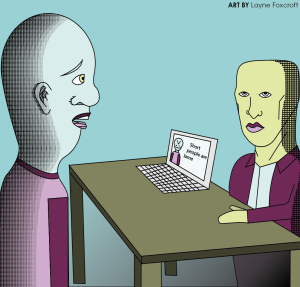Gen Z has turned humor into a coping mechanism

In a time of adversity, humor can be used to help shine a light on people’s views as well as grow relationships in a time of distance.
April 12, 2021
Humor is used by many as a toy; engaging to have fun and play. However it can be used as a coping mechanism, according to The Conversation psychologists have recently discovered how much of a tool humor can really be. In a time of adversity, humor can be used to help shine a light on people’s views as well as grow relationships in a time of distance.
“I think humor can be counterproductive when it is used to completely ignore the stressor you are having to deal with,” psychology teacher Kris Grandinetti-Johnson said. “It can be harmful if the person is using humor to degrade or at the expense of someone else’s feelings. Good humor shouldn’t have to make someone else feel bad for you to feel good.”
Stanford University conducted a study in which subjects were asked to respond to disturbing images with improvised jokes – negative or positive jokes – to reinterpret the photos before they expressed their emotions. This study found that those making positive jokes improved the subjects experienced the largest increase of positive emotions and the largest decrease of negative emotions.
“I personally use humor to soften the effect that particular things have on me,” sophomore Alyssa Wright said. “Most things don’t seem real until you actually sit down and talk about them seriously.”
Even though humor can fight depression, it is also possible for it to actually push some towards depression. According to Psychology Today, a study was executed where twins were to take tests determining their humor type, in which there are four -affiliative, self-enhancing, aggressive, and self-defeating. Those with self-defeating were more likely to be diagnosed with depression, those who used the two positive humor types (affiliative and self-enhancing) were more depressive than those who didn’t.
“It’s not the healthiest option for coping because you’re not really working through your problems, you’re just covering them up,” Wright said. ”It’s an easier choice in the moment to just laugh about it and move on than to take the time and truly come to terms with whatever it is you’re dealing with.”
Humor can also help form relationships between people, for according to Greater Good Magazine, a study was conducted where two viewers had to watch funny to not-so-funny clips while video chatting however one of the viewers was prerecorded. The viewers said that they felt more connected to the other person when they shared a laugh.
“Humor can bond friends and partners,” sophomore Cara Gonzales said. “Humor connects people and that’s how you can find people who are like you with similar interests and personalities.”
According to Brain and Behavior Publishing, humor can be used to withstand depression because humor’s main structure is to bring vast amounts of positivity and combat negativity. The positivity and distraction that humor can bring can change peoples’ view on misfortune.
“If you can’t laugh you’ll just be depressed. Even if you’re laughing at tragedy,” sophomore Palmer Hurd said. “Laughter and humor is another way to not depression consume you which can be a good strategy.”









